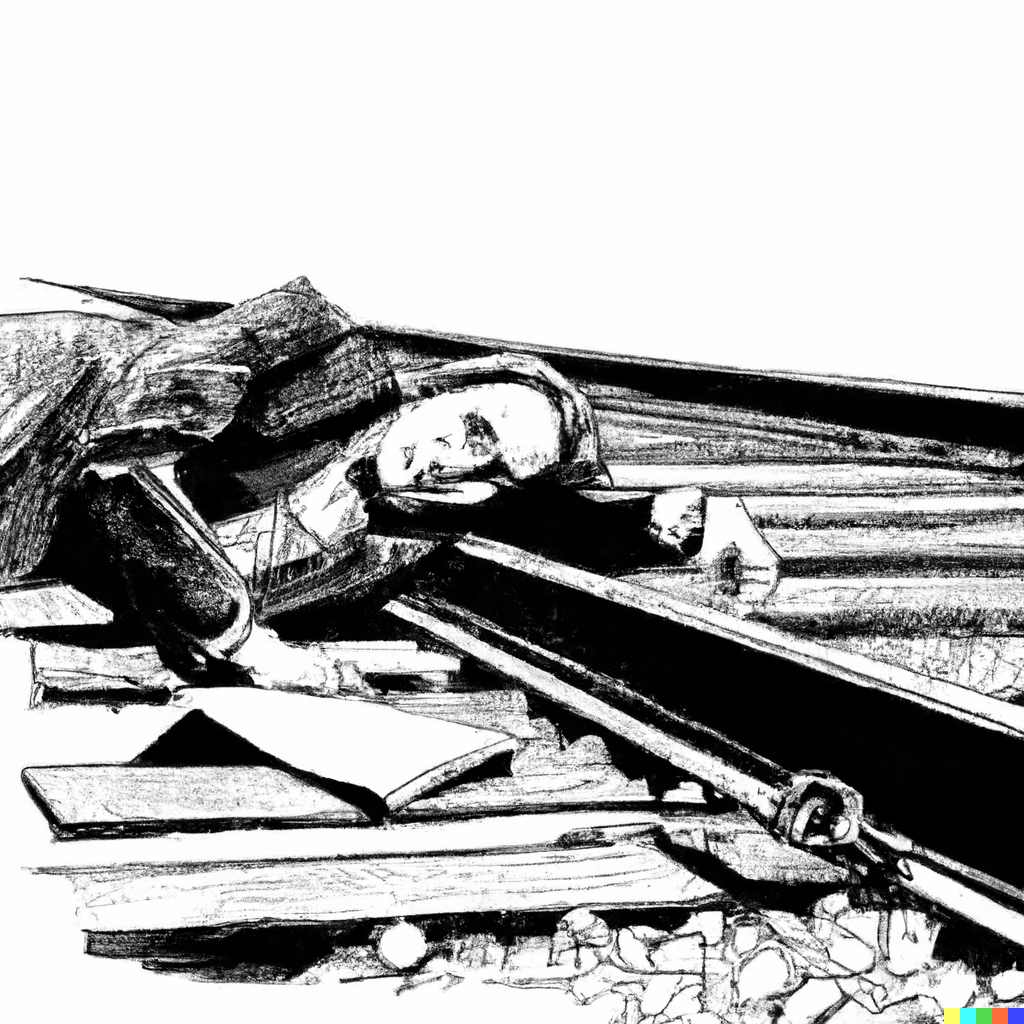In the original version of a now classic thought experiment, five people are about to be killed by a runaway trolley. Would you divert the trolley knowing that your choice will kill a single innocent bystander? That thought experiment is the seed for this conversation between EconTalk host Russ Roberts and fan fav Mike Munger. It gets even more interesting when Munger claims that Adam Smith had an elegant solution for this problem- a problem not articulated until the 20th century!

Part of the challenge of the trolley problem is the question of using cost-benefit analysis to make life or death decisions. As Roberts expresses the challenge of the trolley problem, it’s the difference between killing and allowing to die. Phillipa Foot, the mid 20th century philosopher who formally posed the trolley problem, it’s the doctrine of double effect- when you’re faced with a choice between two alternatives which you did not create. I’ll not ask how you would solve the trolley problem, but I will ask how you feel abut some of the permutations Roberts and Munger discuss. We hope you’ll share your responses to the prompts below in the comments; we love to hear from you.
1- Roberts suggests we’re so uncomfortable with thought experiments like the trolley problem is because they pose a moral dilemma. That is, if we operates by a strictly utilitarian calculus, the “answer” would be obvious (assuming the original trolley problem- not a baby on the tracks, etc.). Why do we feel there’s a difference between the two options in terms of moral agency?
2- The trolley problem is, of course, a hypothetical puzzle. Munger describes his class discussions on the movie Oppenheimer, emphasizing that the United States’ decision to drop the atomic bomb was NOT a hypothetical. After listening to the conversation, do you think the US was morally justified in using atomic weapons? Why or why not? How does your answer take into account the distinction between killing and “not allowing to die?” (And if you’ve still got some ethical muscle left, why do you think the firebombing of Tokyo was treated differently than the atomic bomb, as Roberts asks?)
3- Roberts and Munger discuss Adam Smith’s famous example of the Chinese earthquake, which Munger points to as Smith’s version of the trolley problem. How is the earthquake example analogous to the trolley problem? What is Smith’s “solution,” according to Munger? What’s the “second part of the story” that commentators often leave out, and why is this important to Smith’s solution? Does his solution depend on this second part? Explain.
4- I pose this next question with great trepidation… And that’s because I think Russ is wrong on the point he makes about externalities (53:27). He says, in response to Munger’s reading from the Book of Smith:
If Smith were literally right in that passage–if that passage was accurate–we would not worry about externalities in economics. We would just say, ‘Well, they’re not important, because people internalize them because of the man in the breast.’ They would never pollute or litter, or do things that harmed other people, because they would be aware that they were putting themselves forward.
Why do you think that I think Russ is wrong? Would there really be no externalities if Smith’s impartial spectator always worked? Why or why not?
5- Roberts closes by asking Munger, “Do you think capitalism and the commercial society encourage us to put ourselves before others? Do you believe that we are coarsened by the competitive nature of capitalism and tend to frequently ask, ‘What’s in it for me’?” How does Munger respond? How would you respond? In what ways does your response differ from Munger’s, and why?


READER COMMENTS
Luke J
Oct 26 2023 at 12:48am
Re: 1 and 4
The Good Place season 3 episode 9 reintroduces us to the character Doug Forcett. As a young man Doug hallucinated about the afterlife the point system. Now Doug (played humorously by Michael McKean) is in his sixties and is reading Peter Singer’s The Most Good You Can Do. He lets himself be bullied by children and animals, he drinks his own filtered urine, eats only the radishes and lentils he grows, and then walks to Edmonton to donate money to a snail charity. Doug Forcett wants to get into the good place and he thinks he needs to live perfectly to get positive points and avoid negative points. Unfortunately for Doug, he’s only accumulated about half the minimum necessary to enter the good place, and he is nearly 70.
Not only has Doug made his own existence insufferable, he can’t make headway because every kind action makes himself or someone else worse off: Doug’s life is the trolly problem! And in episode 11 (“The Book of Dougs”), Janet explicitly uses the term “unintended consequences” to describe how a good deeds in a complex world can still be net negative.
Yes, externalities will be observed phenomenon even in a world in which all people have well-adjusted impartial spectators; partly, because of the subjective theory of value, but also opportunity costs.
Episode 9 is called “Don’t Let the Good Life Pass You By.” It’s not an ode to selfishness, but is an interesting critique of utilitarianism expressed though the tragedy of Doug’s existence: Life is too complicated to calculate all costs and benefits of every action to arrive at a correct solution, and such a calculation misses the point of living in the first place.
Amy WIllis
Oct 26 2023 at 9:41am
Luke, as luck would have it, I just read Singer’s newly updated version of Animal Liberation. I get this point. But the point I worry about more w Singerian (might’ve made that word up) ethics is the elitism I see in it. That is, with regard to animal ethics, I largely agree with Singer (though I am neither vegan nor vegetarian). But I also think the actual cost of following his ethical food path is prohibitive for lower income persons. And I have a problem with that. Just a tangent. (PS- I adored the Good Place, except for its exclusion of Smith!)
Luke J
Oct 27 2023 at 2:52am
I would be interested in your (and Singer’s) take on the “monkey selfie” controversy. It’s a few years old but I only heard about it this week. A couple of links:
Short Circuit Podcast: Monkey Selfie and others
Wikipedia Monkey Selfie
It’s not on the same level as eating meat but the presumption that an org can sue for copyright infringement on behalf of an animal seems very elitist.
And on The Good Place, I missed Smith too but it reminds me of my uncle’s dissatisfaction with the TV series. My uncle is a protestant pastor and he thought that the show failed to emphasis the truth of Jesus and presented false ideas about what happens when we die. My response to him was that the Good Place is not about what is true or false about any particular religion, but is a comedic yet thoughtful reflection and critique about how humans think about the afterlife. So had Smith made it into the series, likely it would have been a short bit about how no one lifts a finger for anyone else unless there is profit to be had, and that’s a false version of Smith I’m glad was on the cutting room floor.